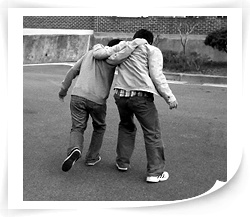The Canto of Ulysses
This chapter tends to be light heartening in its tone of writing, and I think Primo Levi intended to include this chapter to avoid the monotonous tone filled with serious and gloomy tone that had been dominating in previous chapters. This chapter discusses how people like Jean had “immune” well in the environment given, in which, he was able to build relationship with Germans and other people around that would benefit him. This chapter, in fact, had most dialogues throughout the whole book. I guess the dialogues between Pikolo and Primo Levi has great significance. The talk of Levi and Pikolo was nothing serious, rather, it was quite entertaining, but the dialogue itself reopened the mind of Primo Levi about his identity that had been blocked by the physical suffering. In the story, Primo Levi tries to teach Italian to Pikilo by translating the Canto of Ulysses from Divine Comedy. Although, this might mean nothing for ordinary people who could enjoy all the luxurious entertainment, I guess, it would have been special and sweetest dialogue Primo Levi ever had in the concentration camps because the ordinary dialogues that went along the concentration camps were foul languages of SS soldiers shouting in unkown languages. Although Pikolo and Primo also did not understand each others’ languages, it would have been a joy for Primo to try describing Italian as the joyful memory of the past entertainments flashed throughout his head. It was an opportunity for Primo Levi to reveal his true identity. I believe finding the identity of oneself is significant because the identity provides purpose in lives, and this purpose is necessary because it would be a fuel to endure the harsh environment of the concentration camps.
Sunday, March 11, 2007
Subscribe to:
Post Comments (Atom)

No comments:
Post a Comment